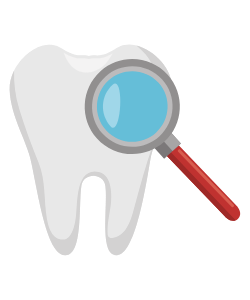When you cut yourself, you generally press an appropriate material against the laceration, apply pressure and wait for the wound to clot. It's not exactly complicated, and this is the basic function of a bandaid. A gum laceration can be rather more complicated. It's difficult to apply a steady amount of pressure to these wounds, and it's practically impossible for the cut to dry sufficiently as it would on the surface of your skin. When does a cut to the gum require medical attention?
Applying Pressure to the Wound
A gum laceration still requires pressure, and you need to exert this pressure using something absorbent in order to soak up the blood and any excess saliva. A piece of sterile gauze is your best choice, although a warm, damp tea bag will also be beneficial. Do not use a tissue, toilet paper, or a kitchen towel. The fibres of the paper can dislodge and become trapped in the wound, as there is simply too much background moisture.
Minor, Shallow Cuts
Shallow lacerations will generally heal of their own accord, although there can be increased sensitivity. Keep the wound clean using a saltwater rinse. Even though mouthwash has antiseptic properties, it will aggravate the wound. This can be painful and can even impede the healing process. If the wound does not stop bleeding, or if the pain is severe, you will require emergency dental services.
Deeper, More Serious Cuts
A gum laceration has the potential to expose your cementum, which is the outer layer of the lower portion of your tooth. This is usually concealed beneath the gum line, although a sufficiently deep cut can expose the cementum. Given its usual protection beneath the gum tissues, cementum is not as strong as enamel (the surface of your teeth above the gum line), and so the gum will usually need to be stitched, along with any additional measures to protect the tooth and prevent further damage. Your dentist will need to be sure that the cementum itself has not been breached, which can expose the very roots of the tooth. This can be painful and has the potential to compromise the tooth (making it more prone to infection and further degradation).
No matter how they happen, some gum lacerations can be very serious indeed and have the potential to affect your overall oral health. Be sure to seek immediate dental treatment if the cut is particularly deep or painful or doesn't stop bleeding. You can call an emergency dental service to get help now.
Share
